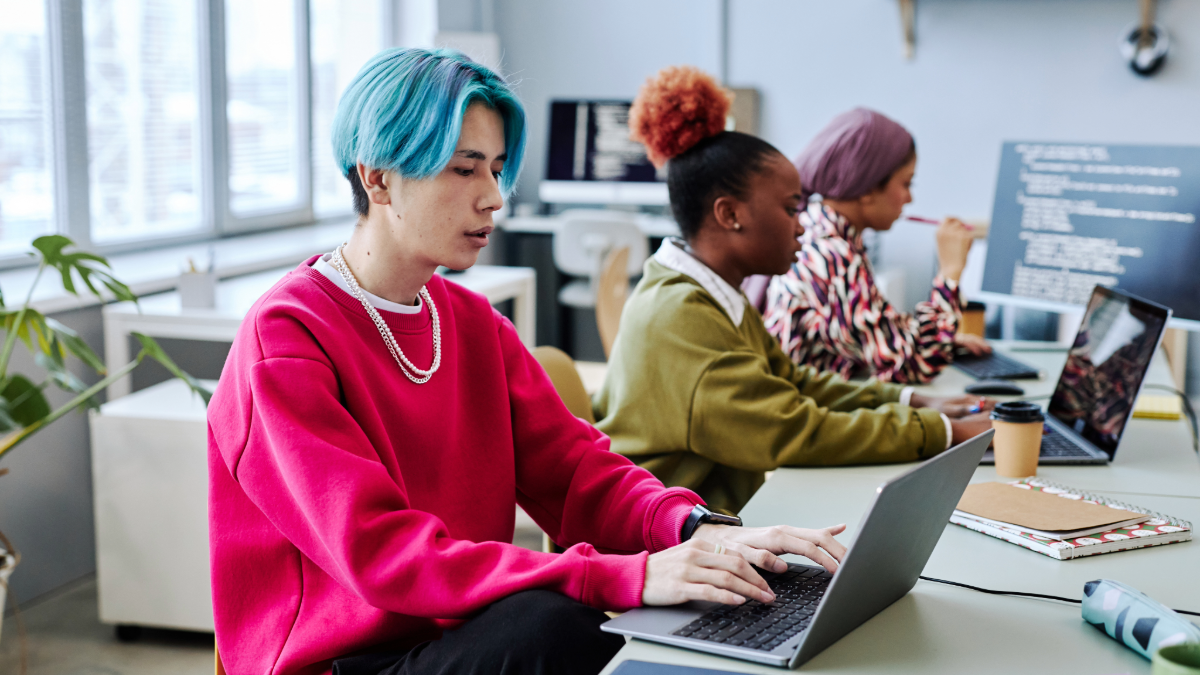Recently we joined 100 leaders at Enpro Industries, a global materials science company, as part of a virtual leadership retreat. They read and discussed Mark Helprin’s story, “The Pacific.” Set during WWII, Paulette is a soldier’s wife working as a welder while her husband is fighting on the Pacific front. She approaches her work with passion, discipline and determination in hopes that her spirit will help bring him home.
Admittedly an unorthodox start to a leadership retreat, this story invites curiosity and camaraderie in the examination of current workplace dynamics.
The conversations, like the story itself, centered on the resilience of the human spirit in the face of fear and uncertainty. The groups drew parallels to today’s changing workplace norms, remote work and the continuing impact of a widespread pandemic on the operation of a global manufacturing company.
Through the story, they explored what it means to be present during tumultuous times and how uncertainty opens the door to new experiences, to innovation. They discussed Paulette’s welding as a metaphor for the craft and purpose of work itself - what do we get from a job well done? Is it simply remuneration or something more? At the end of the day who do we really work for?
Deeply committed to their own work culture, Enpro is a “dual bottom line company” that places equal weight on financial performance and human flourishing. The company invests in personal and professional development, upholding their core values in every location around the globe: safety, excellence and respect.
And they invest in the quality of the relationships among their colleagues. Because the quality of relationships drives the depth and sustainability of organizational culture.
At this point you may be thinking, “Oh yes, that’s nice, but we don’t have time.” Here’s why you should think again.
The difference between a group of individuals and an effective team – between cordial coworkers and collaborative colleagues – rests on the quality of their relationships. It doesn’t really matter whether you are supporting a culture of innovation, collaboration, inclusion or productivity, high-quality relationships, and the skills associated with them, form the necessary foundation.
But good relationships require interpersonal relationship skills. Learning and maintaining them takes practice. These skills are
- Listening. Real listening happens with an open mind and an open heart, with humility and curiosity. This is listening to learn, not just to respond.
- Asking good questions. The most inclusive conversations begin with questions, grounded in an authentic desire to understand and a willingness to be surprised.
- Suspending beliefs and “known” truths. The only way to open yourself to multiple realities is by acknowledging that no one reality is “the” story.
- Nurturing empathy. While we tend to think of empathy as inclusive, the science tells us that empathy favors and reinforces familiarity - we tend to feel most for the people we know. Expanding relationships widens the circle of empathy.
- Reflecting together. So often we get lost in our own heads, our own experiences and worldviews. Joint reflection brings the previous four skills to life - it’s the exchange and consideration of diverse perspectives and ideas that generates the collective learning - the very learning that drives the outcomes nearly every organization seeks: inclusion, collaboration, innovation and productivity.
Relationship skills are the skills of well-functioning workplaces. The most effective teams are those that pay attention, consider and respect each other’s experience and perspectives. And science tells us that the most productive teams or groups are those with the strongest social chemistry.
But relationships can’t be legislated - they must be built from the ground up, nurtured and sustained, with intention.
As many organizations are navigating hybrid workforces and looking to integrate new colleagues, intention must replace serendipity. The small collisions at work that used to build important interpersonal networks have been threatened by pandemic safety and remote work. Failing to replace these opportunities to connect to others isolates us individually and impedes us from our most effective collective work.
Investing in relationships is good business at any time. But the need has intensified - as uncertainty and the future of hybrid work highlights the potential loss of workplace connection and community.
Stories like “The Pacific” provide a low stakes and creative starting point to explore and engage, and to build the skills that we need for the future - individuals and organizations alike. In a hybrid or global workplace, retreats like Enpro’s brings the story "home" and create the touchpoints for intentional and productive relationship development.








